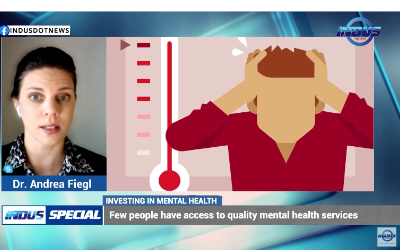Health Finance Digest: Trends in Impact Investing

The 2020 Global Impact Investment Network’s (GIIN) Annual Impact Investor Survey, released this June, shows a massive increase in capital allocated to impact investments. Though impact investment has been growing consistently, total asset value grew by almost 70% from 2019 to 2020 compared to just 5% from 2018 to 2019. This is attributable to more assets per investor and more impact investing organizations.
Encouragingly, much of this new investment has been allocated to emerging markets. 43% of the firms surveyed in 2020 said that they invested primarily in emerging markets, with 59% of this year’s total impact investment capital being directed to those markets. The vast majority of investors reported that they’d used the United Nations’ Sustainable Development Goals (SDGs) to guide their investments.
But as impact investing booms, it will become increasingly important for investors, as well as global health and development experts, to have reliable, rigorous metrics for measuring real impacts. The SDGs span a myriad of industries from energy production to healthcare and education to environmental protection. Some organizations have difficulty collecting reliable data on SDGs which we at HFI have observed in our focus on SDG3. As impact investments rise in these sectors, a heightened focus on quality outcome metrics will help demonstrate the true impact and guide future investments.
|
|
|
UN General Assembly Goes Virtual
The 75th Annual UN General Assembly began this week, bringing together world leaders and experts to discuss global problems ranging from chronic disease care to climate change. While the assembly may look different from other years, the virtual platform offers the opportunity to hear a wide array of unique voices and to discuss innovative solutions to tough problems with individuals around the world. HFI is looking forward to attending and learning from the world's best and brightest minds in global health.
|
|
|

|
Launch of the The Lancet Commission on Reframing NCDs and Injuries for the Poorest Billion
After 5 years of research, the Lancet NCDI Poverty Commission report launched on September 15th. The launch event brought together global health leaders from Chelsea Clinton to the head of WHO AFRO, Matshidiso Moeti, to discuss the report and its implications.
The long awaited report offers a compelling investment case for NCDs and challenges policy makers to think beyond the WHO 5 x 5 framework. Given the current syndemic of NCDs, COVID-19, and growing inequalities, it is crucial to invest in the most efficient and cost-effective NCD interventions.
|
|
Resources
Events
- The Data Pandemic: Making Decisions With Too Much, Not Enough, and Politicized Data, 21 September, 2020, organized by The United Nations and The Rockefeller Foundation- Boston University Commission on Health Determinants, Data, and Decision-making
- SDG Action Zone, 22-24 September, 2020, organized by United Nations
- Revisiting Social Impact Models in the COVID-19 era: Improving NCD Access Through People-Centred Care to Deliver on UHC, 23 September, 2020, organized by The United Nations and The NCD Alliance
- NCD Voices in the Decade of Action - Integrating Mental Health Conditions and NCDs in a Build Back Better Response, 24 September, 2020, organized by World Health Organization
- Building Forward Better: A New Approach to Mobilize Investment for Noncommunicable Diseases, 30 September, 2020, organized by The United Nations and The NCD Alliance
- 16th World Congress on Public Health, 12-17 October 2020
- Investing for Good Asia, 13 October, 2020, organized by Moral Money and TheFord Foundation
- World Health Summit, 25-27 October, 2020, Berlin, Germany and Virtual
|
|
|
Please consider making a donation to support our work.
|
|
Thank you for your interest in HFI!
|
|
|
|
|
